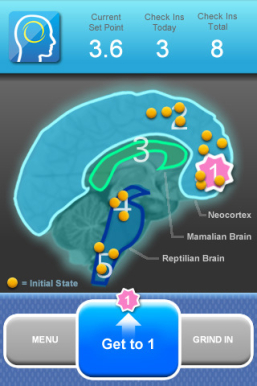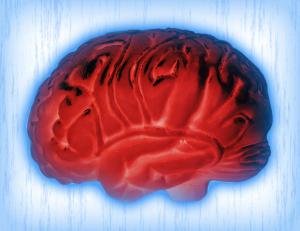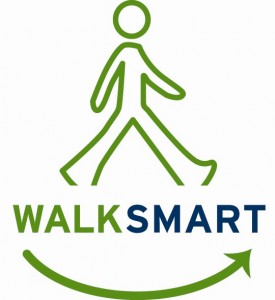Short Walks Weekly Improve Intelligence
40 Minute Walks 3 Times Per Week at Your Own Pace Measurably Boost Brain Function.
In response to an early post a reader sent me a link to this article – A gentle Stroll can Boost Intelligence. It reports on a study conducted with 100 sedentary adults (self-confessed couch potatoes) that started to walk regularly at their own pace 3 times a week for six months. To make the study interesting the researchers had part of the group do the walking and others do stretching and toning exercises. Here is what they found:
“The walkers also had increased connectivity in the part of the brain which helps in the performance of complex tasks and they did significantly better on cognitive tests than their toning and stretching peers.”
This means mild aerobic exercise can change the wiring of your brain and improve cognitive performance. The effect was especially pronounced in the older adults in the study.
Categories: Lifestyle, Older Adult, Problem Solving Tags: exercise
Slow But Steady to Win Brain Health Race?
 Making small changes to our daily activities can make a big difference over the years. Often called lifestyle tuning, this approach can be applied to build brain health and improve your cognitive performance. We have covered many tunning techniques on the Next Brain Blog.
Making small changes to our daily activities can make a big difference over the years. Often called lifestyle tuning, this approach can be applied to build brain health and improve your cognitive performance. We have covered many tunning techniques on the Next Brain Blog.
Posit Science, a leader in brain training software, offers 14 Brain Training Tips. They range in change magnitude from walking on rough surfaces to eating fish and learning to play a musical instrument. Here are the ones that are easy-to-do lifestyle tuneups:
4. Exercise Your Peripheral Vision
13. Walk on a Cobblestone Path
Although we don’t have research that proves lifestyle tuneups produce lasting improvements in brain health and cognitive performance, we do have such research for cardiovascular health. For example, taking stairs instead of an escalator or a 10 minute walk does in fact improve heart health. My bet is that analogous lifestyle tuneups for the brain will improve cognitive performance.
Interested to hear about your techniques for taking a slow but steady approach to the changes needed to improve brain function and cognitive performance
Categories: Diet, Lifestyle, Mental Focus, Perception Tags: brain training, cognitive fitness, exercise
Training for a High-Performing Emotional Brain
 Emotions play a key and often dominate role in our brain function and cognitive performance. We create emotions anytime we appraise or make judgments on people, events, ideas or other things. Our ability to spot, understand and manage emotions in ourselves and others correlates more strongly to life success than IQ. So-called emotional intelligence is a cornerstone for high performance learning, decision-making, creativity, collaboration and other mental and social processes. So I am also on the lookout for new science-based techniques for training my emotional brain.
Emotions play a key and often dominate role in our brain function and cognitive performance. We create emotions anytime we appraise or make judgments on people, events, ideas or other things. Our ability to spot, understand and manage emotions in ourselves and others correlates more strongly to life success than IQ. So-called emotional intelligence is a cornerstone for high performance learning, decision-making, creativity, collaboration and other mental and social processes. So I am also on the lookout for new science-based techniques for training my emotional brain.
For example, take the work on Emotional Brain Training or EBT. It provides a simple way to assess which of five core brain states you are in and then suggests a tool for achieving self-regulation . The five brain states and associated tools are related to your level of stress and include:
- Balanced/reward (joy) state use the Sanctuary tool
- Balanced state use the Feelings check tool
- Verge of stress (mixed) state use the Emotional Housecleaning tool
- Stressed (unbalanced) state use the Cycle tool
- Full blown stress (underwhelmed) state use the Damage control tool
To get started right away you can download the Emotional Brain Training iPhone app (shown above) or find the equivalent in the Droid market.
 If you want to understand more of the theory behind how it works check out the new book, Wired for Joy. Or consider some of the training and coaching offerings from the Institute for Health Solutions.
If you want to understand more of the theory behind how it works check out the new book, Wired for Joy. Or consider some of the training and coaching offerings from the Institute for Health Solutions.
I am just learning to use EBT and am interested to hear from readers that have some experience with one or more of the five tools.
Categories: IQ and EQ, Lifestyle, Manage Emotions, Software, Training Tags: emotion, EQ, smart phone
Not All Naps Have Brain Boosting Effects
 Taking naps has been a hot topic for improving learning, memory and mental alertness for sometime. We have covered it several times in the Next Brain Blog. However, it does not always work. Turns out there is a knack to getting the brain boosting effects from napping. Psychology Today has an excellent article, Ultimate Napping: A How-To Guide, that provides specific guidelines. Some examples:
Taking naps has been a hot topic for improving learning, memory and mental alertness for sometime. We have covered it several times in the Next Brain Blog. However, it does not always work. Turns out there is a knack to getting the brain boosting effects from napping. Psychology Today has an excellent article, Ultimate Napping: A How-To Guide, that provides specific guidelines. Some examples:
- For younger nappers 10-20 minutes is ideal. Sleeping longer will leave you groggy not mentally alert.
- Pick your time, place and be sure to have sleeping gear – pillow, blanket and teddy bear.
- Drinking a caffeinated beverage right before you nap is a great way to wake up fully alert .
- Don’t stress if you don’t fully fall asleep. Just resting can rejuvenate.
Most of the suggestion fit my personal experience well. I have used napping for years. This illustrates that the techniques we use to improve brain function and cognitive performance are often very simple, but applying them effectively can be a bit tricky.
Very interested to hear from readers about specific napping tricks-of-trade that improve cognitive performance.
Categories: Lifestyle, Memory and Learning, Mental Focus Tags:
Handful of Pecans a Day for Brain Health?
 Making small lifestyle changes can improve brain function and cognitive performance. Often small changes are easy to do and if you make enough of them they should add up and have significant impact. We have documented a number of such changes on the Next Brain Blog but I am always on the lookout for new scientific studies that might suggest more.
Making small lifestyle changes can improve brain function and cognitive performance. Often small changes are easy to do and if you make enough of them they should add up and have significant impact. We have documented a number of such changes on the Next Brain Blog but I am always on the lookout for new scientific studies that might suggest more.
Take for example a recent study in the journal, Current Topics in Nutraceutical Research, reported on here.
“The study, conducted at the Center for Cellular Neurobiology at the University of Massachusetts Lowell, suggests adding pecans to your diet may delay the progression of age-related motor neuron degeneration.”
The work is being done by the vitamin E (antioxidant) in the nuts. Please keep in mind this is a preliminary study done with mice not people. Fortunately, it turns out the pecans are otherwise good for you with many vitamins and minerals and no cholesterol or sodium.
I am interested to hear from readers on other small-step lifestyle changes they have made to improve brain function or cognitive performance.
Categories: Cognitive Decline, Lifestyle Tags: vitamins
Improve Mental Performance with Lucky Charms
Research just reported in Psychological Science, Keep Your Fingers Crossed: How Superstitions Improve Performance, provides strong evidence that believing in lucky charms might not be so irrational. Indeed, they may be important for improving performance.
“Specifically, Experiments 1 through 4 show that activating good-luck-related superstitions via a common saying or action (e.g., “break a leg,” keeping one’s fingers crossed) or a lucky charm improves subsequent performance in golfing, motor dexterity, memory, and anagram games.”
Good luck superstitions don’t require magic or any supernatural forces to work. They work by boosting your confidence or belief that things will go your way. Your lucky quarter, shirt, number, and all of that can in fact enhance your brain function and cognitive performance. This in turn can improve your outcomes but only when the outcomes depend upon confidence. So this effect will not work for picking lottery tickets.
Interested to hear from readers about the lucky charms they use to get through intellectually or cognitive challenging situations.
Categories: Lifestyle, Memory and Learning, Mental Focus Tags: Mindset
Yawn to Cool Down, Focus and Power-Up Mentally
 The role of yawing in cognitive performance is being rethought.
The role of yawing in cognitive performance is being rethought.
We yawn to cool our brains and crank up our mental alertness. Keeping the brain cool, like keeping a computer cool, is critical for efficient operation. In short, yawing will boost your cognitive performance not dull it.
The process works by moving blood into the brain.
For an excellent (and short) explanation of the new science of yawing and how to put it to use check out The 3-Second Energy Boost. I especially like the suggestions for how to bring on a yawn including thinking about one (they are contagious) and faking one.
The key for readers of the Next Brain Blog is that yawing is an important means of naturally maintaining mental efficiency. Don’t want to stifle that.
Categories: Lifestyle, Mental Focus Tags:
Silence at the Right Time Improves Cognition
 A Psychology Today blog has an excellent post on the effective use of silence. It is a good reminder that just being quiet often gives the brain a chance to work well. Being silent can improve your listening skills, self control and even your attractiveness to others. The key is to know when to get into the quiet zone – for example, when you are angry or when someone else is speaking.
A Psychology Today blog has an excellent post on the effective use of silence. It is a good reminder that just being quiet often gives the brain a chance to work well. Being silent can improve your listening skills, self control and even your attractiveness to others. The key is to know when to get into the quiet zone – for example, when you are angry or when someone else is speaking.
When it comes to exercising the power of silence to achieve self-control the author writes:
“Think how much more in control you’d not only appear but actually be if your first response upon hearing or seeing something that sparks a strong reaction in you wasn’t to lash out emotionally but instead to become–silent. Silence is a terrific substitute for self-control, not only creating its appearance, but over time and with practice its substance as well.”
Although similar to the “count to 10 rule” for managing anger it is a bit different. The idea is to focus on being silent or learning to get into the quiet zone.
Interested to hear from readers that practice the power of silence and how it has helped them be more effective.
Categories: Ancient Ways, Executive Function, Lifestyle, Manage Emotions Tags:
Boost Happiness by 25% with Simple Gratitudes
 By consciously cultivating a sense of gratitude you can improve happiness by 25%. While this does not raise your IQ it definitely raises you emotional quotient or EQ by developing skills in recognizing and managing emotions.
By consciously cultivating a sense of gratitude you can improve happiness by 25%. While this does not raise your IQ it definitely raises you emotional quotient or EQ by developing skills in recognizing and managing emotions.
But how do you cultivate gratitude? For some excellent practical tips check out Enhance Happiness and Health by Cultivating Gratitude: Interview with Robert Emmons. Some examples:
“The most common method we use in our research is to ask people to keep a “Gratitude Journal” where you write something you feel grateful for. Doing so 4 times a week, for as little as 3 weeks, is often enough to create a meaningful difference in one’s level of happiness. Another exercise is to write a “Gratitude Letter” to a person who has exerted a positive influence on one’s life but whom we have not properly thanked in the past, and then to meet that person and read the letter to them face to face.”
I am interested to hear from readers that use specific techniques for building EQ through practicing gratitudes.
Categories: IQ and EQ, Lifestyle, Manage Emotions Tags: EQ, experiential learning, smart phone
Best Evidence for Improving Brain Health
 The Alzheimer’s Association working in conjunction with the National Institute for Health has a established a website to keep citizens up to date on what the latest scientific evidence has to say by brain health. The site Maintain Your Brain, recommends eating a brain-healthy diet and staying physically, mentally and social active. Techniques we have covered elsewhere in the Next Brain Blog.
The Alzheimer’s Association working in conjunction with the National Institute for Health has a established a website to keep citizens up to date on what the latest scientific evidence has to say by brain health. The site Maintain Your Brain, recommends eating a brain-healthy diet and staying physically, mentally and social active. Techniques we have covered elsewhere in the Next Brain Blog.
Of special interest is the 70-page National Public Roadmap for Maintaining Cognitive Health (this a 2.5 MB file) and the Interactive Tour of the Brain. The tour is quick and easy but informative. It provides basic knowledge of the brain and Alzheimer’s disease.
A few minutes on the site provides strong motivation for considering the long-term health of your brain and what needs to be done today. To quote the site:
“When people think about staying fit, they generally think from the neck down. But the health of your brain plays a critical role in almost everything you do: thinking, feeling, remembering, working, and playing – even sleeping.”
Interested to hear from readers on what specific things they are doing to maintain brain health.
Categories: Cognitive Decline, Diet, Lifestyle Tags:



